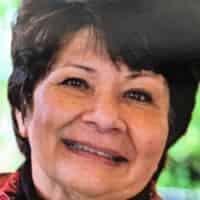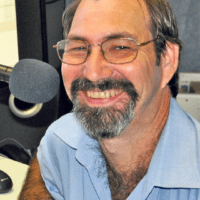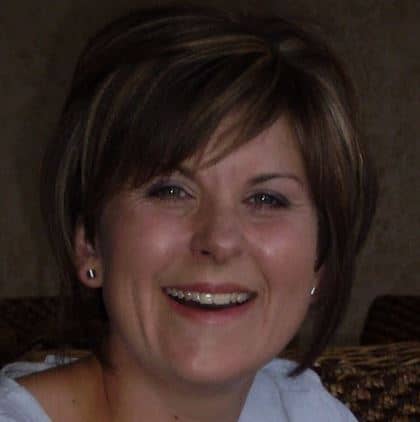

Joze Cek was a 9-year-old living in Slovenia when World War 2 ended and his homeland was subsumed into Yugoslavia. His father, with a family of 9 children had no money, and no food but managed to survive with the whole family working hard. By burning limestone in a very hot fire they created calcium oxide earning a small income. They also made charcoal to sell by burning wood on a slow combustion fire in the forest. Then his father started collecting bullets and extracting gun powder. This earnt a good income but was extremely dangerous and highly illegal. The gun powder was normally extracted in the farm shed but it was a very cold winter so they moved to the kitchen. One day there was a sudden explosion making family members to jump through the windows. It was miracle no one was killed.
Joze was 19 years old when decided to look for a better life to help his family. He escaped Slovenia on 12 October 1955 crossing the heavily guarded border arriving in Udine Italy 3 days later where he was granted a protection visa. After a year he was transferred to the refugee camp in Snt. Antonio Salerno where he worked as a cook.
Organisations like The Foreign Service of USA, the National Catholic Welfare Conference and Intergovernmental Committee for European Migration were helping refugees to migrate. Everything was organised, including travel. It also contained a Contract ‘’Sitmar’’ with conditions.
On 4 January 1957, Joze boarded the MV.FAIRSEA in Genoa. After a month he in Melbourne on 10 February 1957 where he was transferred to the Military Migration Camp in Bonegilla. He stayed for five days until they found him a seasonal job, fruit picking in Mildura. When that finished in July he travelled to Japoonvale near Innisfail where he worked cutting rainforest timber. He also found work cutting cane in Mena Creek. Although forbidden to write to his family in Solvenia, we later found unsent letters, saying that his job was well paid. He also said that it was 1 year since he had heard from his family and didn’t know if they were dead or alive.
After a few years cutting sugarcane near Innisfail, Joze found a job at Palmerston on the McCarthy’s dairy farm. The family loved him so much they wanted to adopt him but he told them he already had a family.
Joze heard that on the tobacco farms in Mareeba and Dimbulah, good wages were being paid. He moved to Dimbulah on 20 November 1960 where he met other Slovenians and Croatians. In 1962 he was offered a share-farm position with a Croatian family, receiving membership from North Queensland Tobacco Growers Co –Operative Association in July of that year. As a share farmer, he paid the farm owner 36% of net tobacco proceeds.
The following year, Joze bought a block of land near Dimbulah at auction to develop a new tobacco farm. The tobacco industry had introduced a stabilisation plan to control expansion so he missed out on a free quota so kept share farming.
In June 1966 he returned to Slovenia to visit his family and hoping to find a wife. A few days after arriving he was visiting his sister. There was a village celebration and there met his future wife, Milena Bubnic. They fell in love and on 8 April 1967 were married. Joze returned to his share farm in Dimbulah, 19 year old Milena and their 6 month old daughter, following on 8 May 1968.
For Milena the farm was a shock. She could not speak English. Life in Slovenia had changed from when Joze was forced to leave the country. She left behind an automatic washing machine, coming to Australia where she had to wash laundry by hand in a copper boiler over a wood fire! She had to cook for seasonal workers, 5 meals a day, 7 days a week. She had hesitated in coming to Australia until her auntie encouraged her by saying, “’Girly, go to Australia, go! You’ll wear a fancy hat every day, and you’ll get rich’. If only auntie knew Milena would be wearing a hat for protection from the hot blazing Queensland sun working in a tobacco paddock.
In 1973 medical reports linked tobacco smoking to many sicknesses including cancer. The following year, farm input costs rose by 50%. An anti-smoking lobbying was established advocating bans on advertising smoking. These were signs of a shaky future for the industry and Milena who had never liked the idea of growing tobacco encouraged Joze to leave the industry.
In September 1974 the Cek family bought 252.4 hectares (only 60 ha was cleared) of land at Arriga planes in an Irrigation and Water Supply Commission auction. Joze and Milena’s dream of owning their own property came true. Joze’s passion was cattle and he bought 75 head just after the land auction. With very limited resources and a debt on the property, all farm machinery, was purchased second hand.
He started developing and clearing the land with Milena by picking up logs and his young son on his knees in the tractor. Sadly, cattle prices were the worst in decades, and maintaining cattle was expensive. While looking for a more productive agricultural industry they were approached by Burdekin Rice Producers Co-Operative. The Cek’s planted the first rice crop in 1975. Rice production was prosperous for quite a few years. Over time they cleared all the farm. Where rice could not be grown, Joze produced high quality hay. Joze also produced seed from the tropical grasses, harvesting the seed with a rice harvester.
On 8 February 1989 catastrophe struck. At 52 and in the prime of his life and on the last day of harvesting Joze had a fatal accident. Although Milena loved the farm it was big and difficult to manage. She was considering selling but her son, then just 16 said ”Mum I love this place. I want to stay. This is where dad created our home. I will help you”.
Milena leased a majority of the farmland to a local seed producer and went out of rice production 3 years before it cease in Mareeba. The Mossman Sugar Mill was looking for new growers to expand the industry on the Atherton Tablelands. Milena’s neighbour, was growing experimental sugar cane seed plants so she planted 6 acres in September 1989. This was one of the first commercial crops of sugar cane on the Atherton Tablelands. When the lease for seed production expired, sugar cane was planted on a big scale. By this time the farm had a farm manager. Seeing a need for harvesting contractors, Milena joined Arriga District Harvesting Group in 1992 together with 2 other farmers to counteract the high cost of sugar cane production, in particular transport to Mossman.
In 1995, recognising the increasing value of the tourist industry on the Atherton Tablelands, Milena opened the ‘’Arriga Park’’ farm house to Farm Stays. Tropical Fruit tasting tours were also conducted on the property and soon Milena was hosting bus tours. These enterprises helped boost farm income.
In 1997 Tableland Sugarcane Growers representatives signed a contract to build the first sugar mill in 70 years with Bundaberg Sugar. With the new mill needing more sugar cane, additional planting began on the remaining land but the water allocation was insufficient. This was overcome by building a dissolvenator and drainage system to catch runoff water into a dam supplying a centre pivot irrigation watering 65 ha of cane. Although costly it resulted in Arriga Park receiving a major award for water use efficiency.
In 2005 Milena sold the farm to her son Martin who renamed the property, Cek farming. Martin, like his father, had a love for the land in his blood. He follows in his fathers’ footsteps, seeking to improve farming practices. In June 2011, Cek Farming received an award for Innovation in the sugarcane industry.
Joze Cek found a good life and prosperity in Mareeba. Escaping poverty and communism with nothing, he was able to leave his family in a friendly environment where he had built a home on which they could prosper after his untimely death.


Angela was born in Mareeba but like most young people left to pursue a career in Corrections and then Community Services. On retirement, she returned to her home town and is happy to be contributing to progression and preservation.

Mick has worked casually in radio for 30 years at a number of stations including 4LM, 4GC and 4KZ whilst also working for Telstra. He joined the 4AM team taking over the Breaky Show full time in July 2014.

We are a local app design company located right here on the Atherton Tablelands. Drop us a quick email and we will help you analyse what a new or improved app might mean to your business.

Janet worked with the Mareeba Heritage Centre between 2016 - 2022. She had the vision to create this project and was instrumental in acquiring funds and putting the right people in place to bring this project together. Janet is passionate about community engagement and development.
© Mareeba Heritage Museum and Visitor Information Centre 2026